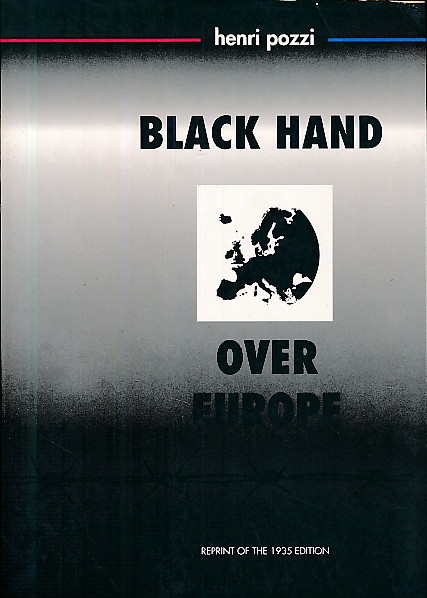Black Hand Over Europe
€46,50
Nema na zalihi
| Težina | 384 g |
|---|---|
| Format | 15 × 20 cm |
| Autor | |
| Izdavač | |
| Mjesto izdanja | Zagreb |
| Godina | 1994 |
| Broj stranica | 278 |
| Uvez | Meki |
| Stanje knjige | Kao nova |
Reprint 1935. Black Hand Over Europe is an English translation of Henri Pozzi’s book ‘La Guerre Revient’, originally written in French, and published in London in 1935. For nearly thirty years the author was a member of the French and English intelligence service in the Balkans and Central Europe, and for ten years was in charge of Le Temps’ Balkans Secret Service. He was the best qualified person to explain and predict the events that were to happen in the 1930s, which he described in his book ‘War is Coming Again’. Pozzi’s book, Black Hand Over Europe, was written to warn the Western World of the dangers to which they would be exposed if they continued to support Serbia’s expansionist project. Based on the combined efforts of King Aleksandar Karađorđevic, Serbian radical and extremist parties supported by individuals in the army, the Serbian Orthodox Church, paramilitary organizations, some with their legal and other secret terrorist wings, such as the Black Hand (Crna ruka), Unity or Death (Ujedinjenje ili smrt), Slavic South (Slavenski jug), People’s Defense (Narodna odbrana) etc. The author also surveys the political situation in the Kingdom of Serbs, Croats and Slovenes (SHS), renamed Yugoslavia in 1929, and shows how the Yugoslav state was created for the simple purpose of implementing Serbian domination over non-Serb nations within Yugoslavia, and infiltrating neighboring countries with secret agents. This book is distinguished by Pozzi’s excellent knowledge of the political situation in Central and South East Europe and represents a valuable testimony of his time. Following the suicide of Vojislav M. Petrovic (a Montenegrin, ex-attache to the Yugoslav Legation in London, who had been preparing a small book on the history of the Sarajevo assassination in the light of the knowledge of the Pan-Serbian organization called the Black Hand), Mr. Francis Mott, a well-known English publisher, received a letter from Paris, claiming that Petrovic’s death was only one in a long series of crimes committed by the Pan-Serbian terrorist organization Narodna Odbrana, which bore direct responsibility for the First World War. The author of the letter urged the publisher to print Petrovic’s unfinished manuscript, along with Pozzi’s book, on the basis of the author’s personal experiences and sources of information, warning the English of the dangers all Europe would be exposed to if they continued supporting Serbian expansionist political parties. The Black Hand, Unity or Death and the other mentioned organizations with similar purposes trace their roots back to 1903 and the assassination of Serbian King Aleksandar Obrenovic and his wife. At that time, born among the conspirators of that act, the idea of organizing a secret organization whose purpose would be to fight for the unity of all Serbs in Southeastern Europe, to live in the same state. The preparations for such an organization would continue until 1911, when the organization was formed under the leadership of D. Dimitrijevic-Apis. At that time, the constitution and by-laws of the organization were made, as well as a seal and a flag. The flag showing a skull, two bones and a dagger. During the oath taking ceremony, they had on the table the flag, dagger, bomb and a bottle of poison. Members were required to take an oath, and should they fail to complete a given task, they were to drink the poison, otherwise they would be killed by the other members. In the constitution, when describing the unity of the Serbs, mentioned as Serbian provinces are: Bosnia and Herzegovina, Montenegro, Old Serbia, Macedonia, Croatia, Slavonia, Vojvodina and Primorje; areas where Serbs live and wanted to incorporate into Greater Serbia. From the time of publication of Pozzi’s books until today, the occurrences described in the Black Hand have been repeated on several times or occasions. Alarmingly, the situation today, with the process of Western Balkans, is bone-chillingly similar!
